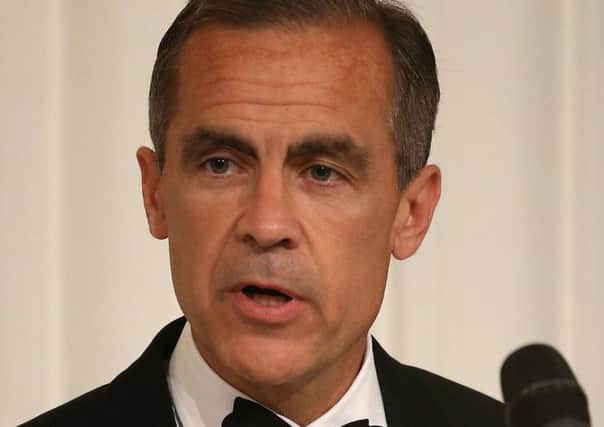George Kerevan: Carney’s in a corner on rates


Carney did not consider a rate rise in February, despite clear evidence the economy was surging. He claimed the level of genuine unemployment (ie spare capacity) was higher than officially recorded, because so many part-time workers are under-employed. Besides, sterling was rebounding, lowering inflation worries, if only temporarily and artificially.
Even in February, he was over-estimating spare capacity where it mattered. Last year’s official Employer Skills Survey found that 22 per cent of the 655,000 vacancies remained unfilled because of key skill shortages. Today, the situation is much, much worse. Adzuna, the classified ads meta search engine, reports more vacancies than jobseekers in 18 UK cities.
Advertisement
Hide AdAdvertisement
Hide AdMy judgment in February was: “It is hard to believe that above-trend growth can be maintained indefinitely without the Bank being forced to blow the interest rate whistle”. On Thursday, in his Mansion House speech, Governor Carney finally got round to blowing that whistle. Or at least, he said rates would rise sooner than markets were anticipating – a weird thing to argue given he is the very one who has been saying the economy has lots of stack.
When will the first rate rise come? The pound shot up on Friday, as foreign investors anticipated action. Of course, a stronger sterling dampens inflation, giving the Bank room for manoeuvre. But now Carney has told markets to expect a rise, they are likely to force his hand some time this year.
Osborne’s planning plus may not be positive
Carney’s warning about higher interest rates sent the share price of volume house builders into a tailspin. Barratt, Persimmon and Taylor Wimpey were all down.
True, Chancellor Osborne used his own (overshadowed) Mansion House speech to announce changes to Britain’s uber-restrictive planning rules. He says these will allow 200,000 homes to be built on former industrial sites.
But we need 245,000 new homes every year, just to stand still.
Besides, Osborne’s new rules promise more than they will deliver. All they amount to is letting local authorities give “pre-planning permission” to brown-field sites of their own choosing – not those necessarily owned by builders.
Councils usually prefer to use this power to attract supermarkets, while housing firms still have the pain of dealing with environmental regulations on former factory sites.
Price a bike as the cost of oil could soon rocket
I DON’T like to trouble your Saturday, but a general war has broken out in Iraq – which means higher oil prices. True, the bulk of Iraq’s oil production facilities are in Shi’ite areas to the south. On the other hand, if Tehran moves to protect them we are facing an outright conflict between Saudi Arabia and Iran, not just the proxy one in Syria.
Here’s my guess. . Fighting in Baghdad sends oil towards $120pb, where we were last year when the world thought President Obama was going to bomb Syria. Anything worse and you should buy a bike.